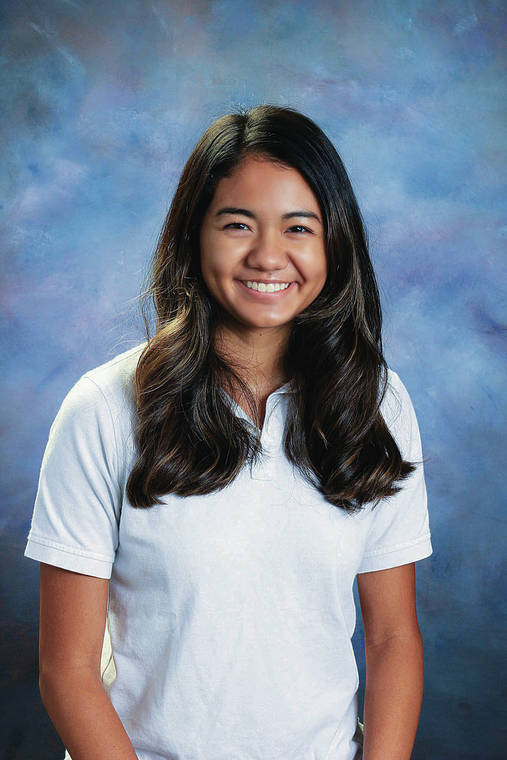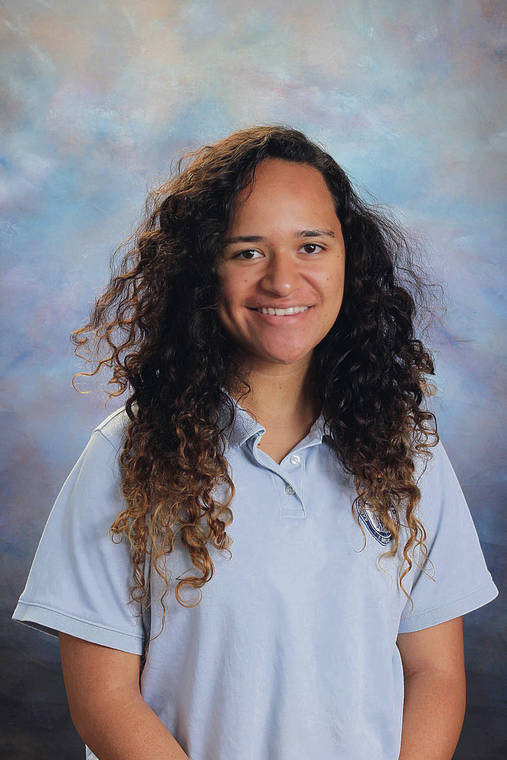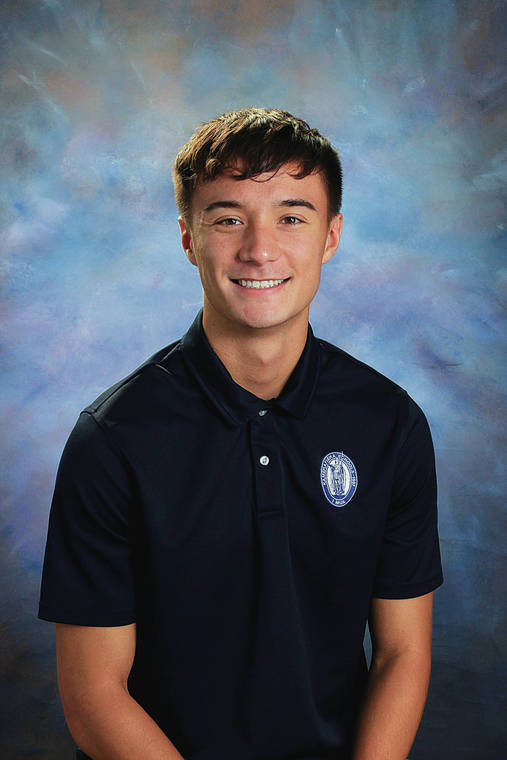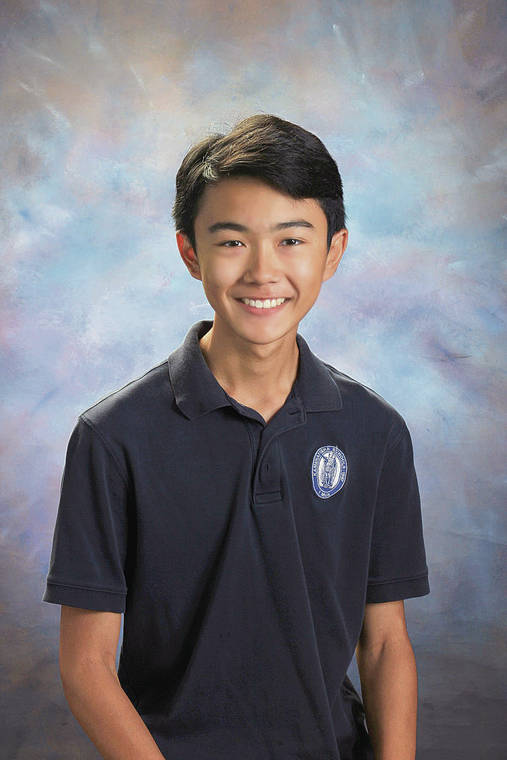Kamehameha Schools students dominate at national science conference

Taylor Moniz

Dakota Kaupu

Joshua Parker

Cade Kane




Seniors at Kamehameha Schools Kapalama swept the top awards at a national science conference for Indigenous students, with research projects ranging from prostate cancer to harnessing energy in Hawaiian fishponds.
“The school has done so much for me — I love it when I have the opportunity to make the school look good,” Taylor Moniz, a Kamehameha student since kindergarten and student body co-president, said Friday in an interview.
Moniz, 17, took first place in the pre-college division for her research poster presentation at the American Indian Science and Engineering Society Opens in a new tab’s national conference Oct. 15-17. The title of her project alone was daunting to the lay person: “Ivermectin Induces Apoptosis, Cell Cycle Arrest, and Senescence in C4-2 Prostate Cancer Cells.”
Her classmates Dakota Kaupu placed second, Joshua Parker took third and Cade Kane received honorable mention in the same category. Kaupu and Kane also won the Boeing Company Laptop Awards in the pre-college division.
For her research, Kaupu extracted and compared DNA sequences of various native Hawaiian raspberry plants. Parker developed and analyzed hydropower generators in the sluice gates of traditional Hawaiian fishponds. Kane’s project focused on isolating and characterizing endophytes, or microorganisms that colonize healthy ti plants.
“To see our students perform so well on the national stage is exhilarating,” said Taran Chun, head of school at Kapalama.
Don't miss out on what's happening!
Stay in touch with breaking news, as it happens, conveniently in your email inbox. It's FREE!
Kamehameha has won awards at the competition in the past, but the clean sweep Opens in a new tab came as a big lift to the students, who had qualified for the International Science and Engineering Fair in the spring but couldn’t go when it got canceled due to the coronavirus pandemic.
“It was definitely hard at the end of last year when everything got canceled,” Moniz said.
This month’s AISES National Conference was held virtually, attracting hundreds of high school and college students from across the country, who competed in separate divisions. They presented their digital research posters and answered questions from the judges via chat — starting at 5 a.m. Hawaii time.
All four Kamehameha students are taking honors science research at Kamehameha, which allows them to pursue their independent interests. Grant Yamashita, their teacher, said the students poured themselves into their projects and earned their success at the conference.
“I want to say that it’s surprising, and yet I’m not surprised just because of the variety of their projects and we know how much work they put into it,” he said. “Part of why they succeed is because they are interested in it and they’re really self-motivated.”
“The engagement for us isn’t the hard part,” he added. “What’s been hard at Kamehameha is that we haven’t had them on campus at all.”
The school has been in distance learning this semester, so students don’t have access to microscopes and other equipment in the labs on campus.
“Students have had to really pivot to figure out how they can do their research at home,” Yamashita said. “Like everyone else, we’ve had to be more creative, more thinking outside of the box.”
Moniz started working with cancer cells when she was a sophomore, and landed an internship last summer at the University of Pittsburgh, where she worked in a lab. She said she focused on ivermectin, an antiparasitic drug used to treat river blindness, as a possible therapy for advanced prostate cancer because it is “super affordable” and readily accessible.
“I’m hoping it will lead to more drug trials for ivermectin and possibly a cost-effective way of treating advanced-stage prostate cancer,” said Moniz, who wants to pursue a Ph.D. in cell and molecular biology.
Over the past year she has been analyzing her data and doing further experimentation to plug holes in the research.
“Because of this pandemic, of course, I can’t work in the lab, but I’ve been working with this coding software … that allows me to see the interactions between ivermectin and protein on a molecular level so I can see if they bind together,” she said.
“I love being in the actual lab, so it’s hard for me not to be able to be there and work on cells and stuff like that,” she said. “I’m not a computer programming person, but I’m really trying to adapt my project to a computer programming project and seeing the bioinformatics side of it because bioinformatics is a growing field now. … I’m trying something different, which is never a bad thing.”
Kamehameha Kapalama just started bringing small groups of students in middle and high school back to campus gradually, “with the ultimate goal of hitting our stride again with a hybrid model,” said Chad Takatsugi, program director of campus communications for KS Kapalama.
“Our entire school community is really proud of all of our students, and when accomplishments like this pop up, it’s reason to celebrate, especially during this time when good stories serve more of a purpose,” he said. “I think people are looking for hope, and they are looking for signs of normalcy and signs of progress.”



